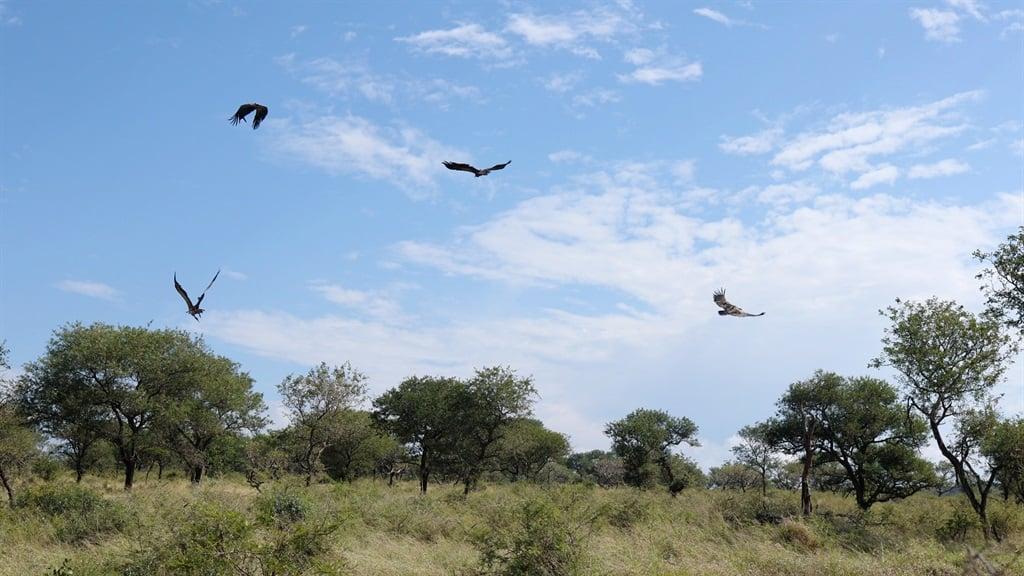Africa-Press – South-Africa. Four endangered vultures in KwaZulu-Natal have been given a new lease on life after they were poisoned.
The critically endangered African white-backed vultures were released back into the wild after six months of rehabilitation.
A fifth vulture was released with the poisoned four after it was found with a broken wing earlier in 2022, which required a significantly longer rehabilitation period.
Vultures face many threats, of which poisoning is currently regarded as the most significant.
In 2022, more than 145 vulture mortalities were recorded in Zululand alone due to intentional poisoning for the illegal wildlife trade.
Conservation organisation Wildlife ACT – together with Ezemvelo KZN Wildlife, Raptor Rescue Rehabilitation Centre, and wildlife vet Dr Mike Toft – led the release which took place at the Manyoni Private Game Reserve on 31 May, said Wildlife ACT’s Human-Wildlife Coexistence Programme manager Peter Jean Roberts.
The release of the vultures formed part of the work undertaken by the Zululand Vulture Project, which works to conserve vultures in KwaZulu-Natal, he added.
The project provides emergency care and transport to compromised birds.
The importance of rapid response
The vultures were rescued after they were poisoned in December 2022, Roberts said.
“Five poisoned African white-backed vultures were captured and treated by [our] emergency response team at a mass wildlife poisoning scene before being transported to Raptor Rescue Rehabilitation Centre for further treatment.
“Despite the best efforts of all involved, one of the rescued birds didn’t survive.”
Wildlife ACT’s Vulture Conservation Programme manager Anel Olivier said at least 49 critically endangered vulture mortalities were recorded at the site, before the four were rescued.
“[It is] a harrowing reality, given that five of the seven vulture species found in SA are listed as endangered to critically endangered on the International Union for Conservation of Nature Red List of Threatened Species.”
The five rehabilitated vultures were fitted with uniquely identifiable patagial tags, leg rings, and GPS tracking units before release.
“This makes it possible to monitor their post-release movements, respond in case of an emergency, and assess the rehabilitation success,” said Olivier.
Small victories amid a larger problem
Olivier added that recent data showed there had been a decline in tree-nesting vulture species in KZN since 2012, with an estimated 81% decline in tree-nesting pairs in the northern breeding cluster of Zululand.
“This can largely be attributed to the intentional poisoning increase.”
Olivier said vultures were pivotal to the local ecosystem.
“By cleaning up carcasses and other organic waste, as well as abating the risk of pathogen spillovers to humans, vultures provide a critically important ecosystem service.
“In KZN, with high numbers of livestock present, as well as the human populations’ direct reliance on the environment, this ecosystem service is crucial for human health and the economy of KZN.”
Olivier said vulture populations were experiencing rapid declines and that we are in “the midst of the so-called African vulture crisis”.
“While we work towards eliminating threats and creating a safer habitat for them to live in, each individual bird saved and released, no matter the species, is considered a victory.”
For More News And Analysis About South-Africa Follow Africa-Press






